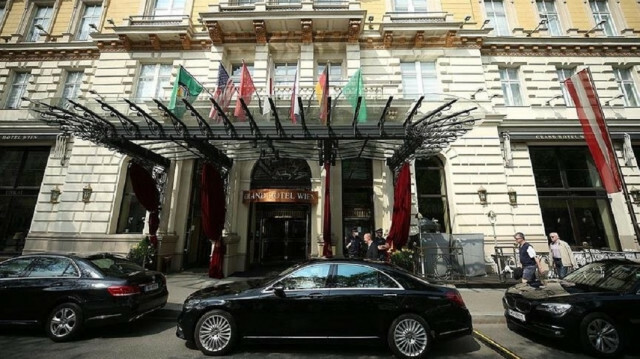
The ongoing talks between Iran and major world powers in the Austrian capital Vienna have hit a snag over the fate of Iran's advanced centrifuges.
According to reports, the US and its European allies participating in the talks have insisted on the destruction of the recently installed IR-4, IR-6, and IR-9 centrifuges at Iran's Natanz nuclear site.
They have made the suspension of sanctions and US return to the 2015 nuclear deal conditional to Tehran's reversal of recent nuclear measures, including the installation of advanced centrifuges.
Iran, however, has refused the demand, calling for the lifting of all US sanctions imposed after the Joint Comprehensive Plan of Action (JCPOA) was signed between Iran and world powers in 2015, followed by Tehran's verification of the same.
The negotiators of the JCPOA joint commission are scheduled to reconvene talks in Vienna on Friday to discuss the progress made by three expert working groups on sanctions removal, nuclear measures, and practical arrangements.
Last week's talks at Vienna did not result in any significant progress, with participants dispersing for the G7 summit in London.
- Nuclear measures
According to official sources, while there has been initial agreement on some aspects of sanctions removal, the issue of nuclear measures by Iran continues to be a bone of contention.
Iran recently ramped up its uranium enrichment up to 60% following an attack at the Natanz nuclear facility, which Tehran blamed on its arch-foe Israel.
It also announced that it was installing new-generation centrifuges at the strategic nuclear site, much to the chagrin of the US and its European allies.
US Secretary of State Antony Blinken dubbed Iran's move "provocative", while Britain, France, and Germany also criticized the decision to enrich at 60% from 20%, besides adding over 1,000 advanced centrifuges at the site.
The US and Europeans have insisted that the "breakout time" — the time period required to enrich uranium for a nuclear bomb — must be at least a year, demanding reversal of recent measures by Iran to ramp up nuclear enrichment.
- Misplaced optimism?
Iranian officials have sounded optimistic about the possibility of sanctions being lifted before the tenure of the Hassan Rouhani government ends next month.
Addressing a Cabinet meeting on Monday, Rouhani said they are "close to the removal of US sanctions," expressing hope that the country's economy will "get back to the 2014-17 path of moderation and prosperity."
Iran's official delegation participating in Vienna talks has also been hopeful of a breakthrough in the coming weeks.
However, experts feel the optimism could be misplaced as the claims of progress at Vienna talks are largely exaggerated.
Mustafa Khoshcheshm, a senior political commentator and journalist, said the US has only accepted to waive, not terminate, half of its sanctions on Iran, suggesting that the claims of progress in talks are exaggerated.
"Election rivalries might tempt government to exaggerate impacts but it won't give US a deal," he wrote on Twitter, referring to the upcoming presidential vote.
Hamid Reza, a political analyst, said that not only has there "not been any notable progress" at Vienna, but things have only "turned worse".
Importantly, Iran's chief negotiator Abbas Araghchi had recently engaged in a public spat with the state-run news channel after the channel revealed details about the talks.













